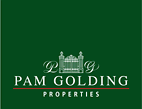Rates up by 7%
2005-06-02
RATEPAYERS in the Drakenstein area can expect their municipal accounts to rise by about 7% from July.
This was announced by Executive Mayor Herman Bailey in his budget speech on Monday.
“This is a pro-poor budget,” said Bailey, adding that Council had gone out of its way to make the budget attractive for poor people.
The total budget is R719,6 million, with R574,7 for operating costs and R144,9 for capital expenditure.
To secure the income necessary, Council made a modest increase to tariffs for the next financial year.
Broken down, the tariff increases are rates 5,5%, electricity 4,5%, sewerage 5,5%, refuse 5,5% and water 10%.
On average for the whole of Drakenstein, taking all services into account, the tariffs will increase for a small house with 6,94% and for a big house by 7,5%.
The monthly account for a big household (use as basis 1094sqm erf, 317sqm house, 1000 units electricity and 30kl water) will increase with R115,08 from R1,733 to R1,848.
A small household (use as basis 215sqm, 58sqm house, 498 units electricity and 25kl water) will pay R632,79 compared with R598,81, an increase of R33,98.
The Mayor said the different towns within Drakenstein are not yet on the same tariff level, but they are working towards parity.
“In the 2005/06 financial year it was supposed to be the last year of the phasing in of the tariffs. However, because of the financial strain on the households, Council has decided to phase in the tariffs for an additional two years.
“We were able to do this tariff proposal because, after having tabled the budget for public release, it became clear that we would be compensated for an amount of R8,1 million because Health Services are being taken over by province.
The proposal includes parity in property tax between farmers inside and outside of town - a figure of 0,00272%.”
Also for parity reasons, Council proposes to cancel the tariffs for backyard structures in Wellington which Paarl does not charge.
Operational budget
The operational expenditure for 2005/06 is R547,7 million, of which 32% goes to salaries and wages, while 22% is spent on bulk purchases, 8% on repairs and maintenance and 12% on capital charges, which includes the interest on external loans, as well as the depreciation of assets.
“Expenditure on salaries is only 32%, mainly because we have cut back a substantial amount by freezing vacancies.
“Specifically extra money has been set aside for the Ward Committees, for specific posts in departments crucial to service delivery and a number of additional departmental requests.
“The growth in expenditure is within the growth parameters set by National Treasury. The increase of expenditure from 2004/05 will be 6,76%.”
The indigent grant received from National Government is used towards the subsidisation of free basic services as well as property rates, to benefit the poorest households.
All households receive 6kl free water a month (R3,9 million is budgeted).
Households with an income of less than R1480 a month receive a monthly subsidy amount of R85 towards their account for sanitation and refuse removal (R4,9m budgeted).
In informal settlements, waste removal is provided free of charge by providing and servicing skips bins (R1,5 million budgeted).
All households fitted with a 20 Amp or less circuit breaker, which
represents the poorer households with low electricity consumption, receive their first 50kw of electricity free (R4,8 million budgeted).
People with properties valued at R50 000 or less are exempt from rates (R2,5 million), with an additional benefit to pensioners who live in houses valued at more than R50 000 (R102 000).
There is a 40% rebate on rates for pensioners earning less than R740 a month, and a 30% rebate on rates for pensioners earning between R741 and R1480 a month.
Capital budget
Four priorities were identified in consultation sessions with the community: housing, local economic development and job creation, the provision of social infrastructure and basic services, and community safety.
In addition to these priorities identified by the community, there are also two key support services: municipal infrastructure development and institutional development.
A total of R26,3m will be spent on housing and identifying suitable land.
Capital of R1,97 million and an operational amount of R1,65m are budgeted for the growth and development of the economy and to decrease poverty and unemployment.
Some of the projects earmarked to create jobs, are the integrated Food Pilot Programme, waste sorting and recycling programme, and a project to expand assets and skills in poor communities.
An amount of R9,3m is earmarked for social infrastructure and basic services and R3,8m will go towards community safety.
In terms of social infrastructure and basic services, they look to phasing out the remaining bucket sanitation system in Wellington to a water-borne system, extend basic services further to informal settlements, as well as the completion of housing projects, and continuation of the upgrading of sanitation services and individual electricity connections in farm worker houses.
Regarding community safety, Drakenstein will continue with traffic calming projects such as speedbumps, raised pedestrian crossings and mini-circles.
In conclusion, the Mayor said: “With this budget I want to ensure that the municipality meets the needs of our communities and fulfils its developmental role. Drakenstein must become the true place of opportunity for all to live, work and play.”
The budget was accepted by 32 votes against 8, the DA voting against. There were a number of empty seats in Council and at one stage it even seemed that there might not be a quorum. Two of the parties, the ID and the UDM, were not represented at the meeting.
* Rates in Wellington, Saron and Gouda will increase by considerably larger percentage than in Paarl.
Wellington’s water tariffs increase by 12,9% and refuse removal 21%. Depending on electricity and water use, municipal accounts could rise by 11%, according to a spokesman for the Wellington Business Chamber (Sakekamer).
More
News
|


